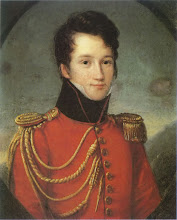Cruelty
A
|
ll
life is suffering”, said the Buddha, this being the First Noble Truth of
Buddhism. This planet is one where everything devours or is devoured by
something. Cruelty thus seeps out from every nook and cranny of the system;
there is no escaping it. Some people feel this so keenly they even refuse to
eat meat. But the majority are not so squeamish. Does cruelty confer an
evolutionary advantage? One would think so, for it seems to be a major
constituent of human nature. Perhaps there exists a gene for cruelty.
The catalogue of human cruelty, like
the catalogue of human stupidity, is so immense one does not know where to
begin. The best one can do is to pour out a few drops of water and say, ‘These
come from the ocean. Go and look at it for yourself.’ The following are a mere
handful of such drops.
The single most horrific picture I
know shows an SS officer hanging two children in Russia
Such scenes were common in England
After the Gordon riots (1780), many children were
hanged at Tyburn, some as young as eight. An aristocratic, contemporary
observer, who attended the hangings for amusement, said he “had never seen boys
cry so much”. One hopes that their tears did not detract from his refined enjoyment.
The youngest child hanged in England
I am often deeply ashamed to be part of the human
race.
In 1978, Afghans captured thirty Russian advisers
to the Afghan Marxist government and flayed them alive. This incident enabled
the Soviet Union to invade Afghanistan
In March, 1979, the entire male
population of Kerala , Afghanistan Herat
Sayed Abdullah, director of the
notorious Pol-e-Charki prison in Kabul
Insert 30 or so examples here.
I have decided not to continue with
this section. It would take up the rest of the book and still only scratch the
surface of the topic. Swift’s verdict on the human race shall stand here
instead: “The most odious race of little vermin that ever crawled between
heaven and earth”. For sheer saeva
indignatio, nothing has bettered this.
COPYRIGHT (C) 2010 J D FRODSHAM




No comments:
Post a Comment